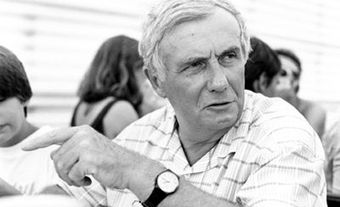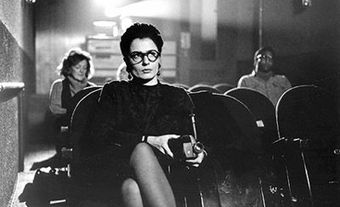Georges Dufaux
Georges Dufaux, cinematographer, director (b at Lille, France 17 March 1927, d at Switzerland, 10 Nov 2008). After graduating in 1953 from the École nationale de photographie et de cinématographie in Paris, Dufaux worked at a film laboratory in Brazil for three years. He came to Canada in 1956 and joined the NATIONAL FILM BOARD as an assistant cameraman. His first assignments included several of the short films produced by the NFB's Unit B for the CBC television series Candid Eye. He received credit as the co-director (with Wolf Koenig) of I Was a 90-Pound Weakling.
Dufaux's own later documentary work was deeply influenced by the exploratory approach of the Unit B filmmakers, but he was also the cinematographer on several important Canadian fiction films, including Bernard Devlin's Les Brûlés (1957), Paul ALMOND's Isabel (1968) and Clément PERRON's Taureau (1973). He frequently collaborated with Perron, and they co-directed a musical comedy, C'est pas la fauteà Jacques Cartier (1967).
After the failure of this fiction film, Dufaux continued to work as a cinematographer, but his major achievement has been as the director of a number of feature-length documentaries that approached social issues by exploring their impact on the people affected. Using a small crew, Dufaux has been able to become intimately involved with the films' subjects, creating the effect of working with them and for them rather than prying into their lives. À votre santé (1974) deals with the relations between doctors, nurses and patients in a Montréal hospital, while Au bout de mon âge (1975) explores the problems of aging through the experiences of one old couple.
Dufaux then turned to the problems of young people in Les Enfants des normes (1978), a series of eight one-hour documentaries on the students in a large urban school. Another major project in the same vein was Gui Daó - Sur la voie (1980), a trilogy on contemporary China.
During the 1980s, Dufaux worked primarily as a cinematographer on several important fiction films, including Francis MANKIEWICZ's Les Beaux Souvenirs (1981) and Léa POOL's La Femme de l'hôtel (1984). He also directed 10 jours...48 heures (1986), a documentary feature on a fishing community in Newfoundland. Dufaux served as Director of the French Program at the NFB from 1986 to 1989. He subsequently left the NFB and returned to cinematography, working on such films as Une Histoire inventée (Marc-André FORCIER, 1990) and La Demoiselle sauvage (Léa Pool, 1991). He has also directed an autobiographical film, Rue Ste-Catherine d'Est en West (1992), and Voyage Illusoire (1997), in which Dufaux renews his interest in China by documenting the return of a writer to her homeland.

 Share on Facebook
Share on Facebook Share on X
Share on X Share by Email
Share by Email Share on Google Classroom
Share on Google Classroom


